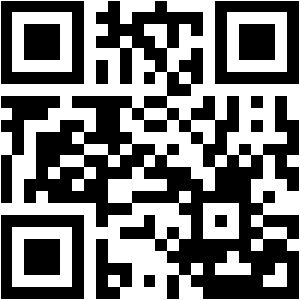BNNS6433: The infection typically starts in the lower urinary tract as a urinary tract infection (UTI): Genitourinary & Endocrine Nursing Assignment, LUC, Malaysia
| University | Lincoln University College (LUC) |
| Subject | BNNS6433 Genitourinary & Endocrine Nursing Assignment |
Question 2
a. The infection typically starts in the lower urinary tract as a urinary tract infection (UTI). Bacteria enter the body through the urethra and multiply, spreading up to the bladder. From there, the bacteria travel through the ureters to the kidneys.
The most common causative agent is Escherichia coli (E. coli). Any serious bloodstream infection can also spread to the kidneys and cause acute pyelonephritis.
b.
1. Urine Tests:
- Urine Dipstick and Microscopy/Cytometry: Detects infection, presence of blood, and white blood cells.
Urine Culture: Identifies the exact organism causing pyelonephritis and determines antibiotic sensitivity. Obtain urine cultures before initiating antibiotic therapy.
2. Blood Tests:
-
-
- Complete Blood Count (CBC): Reveals neutrophilia (elevated white blood cells) associated with infection.
-
3. Imaging Studies:
-
- Ultrasound (USG) of the Abdomen: Assesses for structural abnormalities, renal stones, kidney size, and local inflammation.
- Dimercaptosuccinic acid (DMSA) Scan: Reliable for diagnosing acute pyelonephritis.
C.
1. Treatment Options:
- Antibiotics are the mainstay of treatment for pyelonephritis.
- Initial treatment can be done on an outpatient basis for selected patients who are otherwise healthy and not pregnant.
- Hospitalization is necessary for severely ill patients, pregnant individuals, the elderly, or those with comorbid conditions.
-
Aggressive intravenous antibiotics are administered in the hospital if outpatient therapy is ineffective.
2. Common Antibiotics:
-
- Trimethoprim-sulfamethoxazole (TMP-SMX): Often used for uncomplicated cases.
- Cephalosporins, such as ceftriaxone or cephalexin.
- Fluoroquinolones, such as ciprofloxacin or levofloxacin.
- Treatment duration typically lasts 1 to 2 weeks.
3. Other Considerations:
-
- Analgesics: Use pain medications as needed to reduce symptoms.
- Fluids: Maintain hydration to help flush out bacteria.
- Elective Surgery: Some patients may require elective surgery to address conditions predisposing to recurrent kidney infections (e.g., congenital anomalies, vesicoureteral reflux).
d. Health education that I would provide for the patient prior to discharge:
-
- Medication Compliance:
- Take all prescribed antibiotics, even if symptoms improve. Incomplete treatment can lead to recurrence or antibiotic resistance.
- Follow the recommended course as instructed by the healthcare provider.
- Hydration:
- Drink plenty of fluids, especially water. Staying hydrated helps flush out bacteria from the urinary system.
- Genital Hygiene:
- Keep the genital area clean using mild soap and water.
- For women, wipe from front to back after using the toilet to prevent bacteria from the rectum reaching the urethra.
- Urination Habits:
- Urinate frequently and avoid holding urine for long periods.
- Always urinate after sexual intercourse to prevent bacteria from entering the urethra.
- Safe Sex Practices: Practice safe sex to prevent sexually transmitted infections (STIs).
- Follow-Up Care:
- Schedule a follow-up appointment with the healthcare provider within 72 hours.
- Regular lab tests may be needed to monitor progress.
- Warning Signs: Visit nearest hospital immediately if you experience any of the following:
- Decreased urine output or trouble urinating
- Severe pain in the lower back or flank
- Medication Compliance:
Get Help By Expert
Struggling with your BNNS6433 Genitourinary & Endocrine Nursing Assignment in Malaysia? No need to stress any longer! Our assignment help services offer specialized Nursing Assignment Helper Malaysia to support Malaysian students. With our expert assistance, you can conquer your coursework confidently. Let our professionals handle your assignments while you focus on mastering your nursing skills.
Recent Solved Questions
- MGT6203: Managing Information System Coursework, IIU, Malaysia You are required to read a minimum of three (3)journals, articles, and write a review paper about Industry
- Big investors Ltd, a large foreign mutual fund is considering investing in stocks on Bursa Malaysia: investment analysis Assignment, UIU, Malaysia
- Organizational Behaviour Assignment, UiTM, Malaysia Organisational behaviour can be termed as the investigation of the behaviour of human beings in various settings of organisation
- Business Strategy and Leadership Assignment, ASB, Malaysia Multiple problems confront an organization in a fiercely competitive business climate. This means that a company’s
- BAS6434 Advanced Accounting Information Systems Assessment: Proposed Information System for Yahama Bike Sales System
- BBPB2103: Human Resource Management Assignment, OUM, Malaysia Select any organization of your choice. Explain the environmental factors and the impacts on the practices of human resource
- Film, Television and Screen Studies Assignment, UON, Malaysia Identify the main aspects of mise-en-scene that are being used. Which are most important and why
- 6G6Z1103: Enterprise Programming Assignment, MMU, Malaysia
- BFI3313: Choose ONE (1) financial institution from the banking industry that operates in Malaysia: FINANCIAL AND MONETARY SYSTEMS Assignment, QIU, Malaysia
- Business Law Assignment: A Critical Examination of the Main Sources of Law in Malaysia and Their Role in the Legal System



